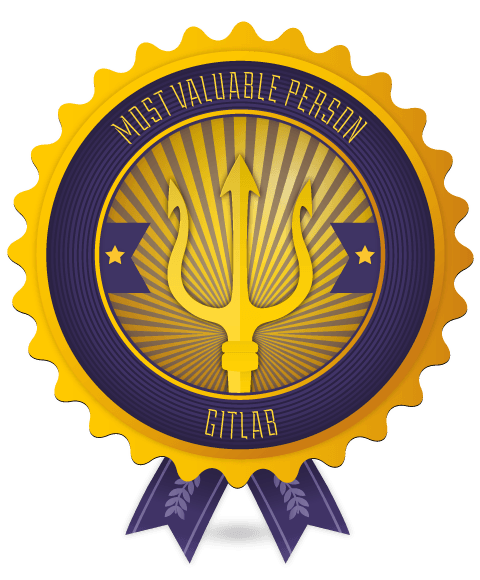Build, publish, and share packages to the GitLab NuGet (.NET) Repository
Build, publish, and share packages to the GitLab NuGet (.NET) Repository
For any organization delivering software, providing teams with an easy and secure way to manage dependencies is critical. Package managers, such as NuGet for C# .NET, provide a standardized way to share and version-control these libraries across projects.
In GitLab 12.8, we are proud to offer NuGet repositories built directly into GitLab. Developers now have an easier way to publish their projects’ NuGet packages. All you have to do is set the NuGet remote to the GitLab Package Registry and start uploading, installing, and deleting packages today.

Compliance Dashboard
Compliance Dashboard
Compliance-minded organizations need visibility. This becomes more difficult as more groups, projects, and users are added to GitLab, which can make it difficult to manage risk and compliance appropriately.
In GitLab 12.8, we’ve added a group-level dashboard as a first iteration towards bringing compliance insights to group owners. This first iteration focuses on aggregating all of the most recent merge requests (approved and merged) from each project in a group. Group owners can now see all of their merge request activity to be informed and take action if necessary.

Network Policies for Container Network Security
Network Policies for Container Network Security
We’re pleased to announce initial support for Container Network Security to help prevent lateral security attacks. You can now configure Network Policies in GitLab-managed Kubernetes clusters to limit communication between Kubernetes pods.
Network Policies can control communication between pods and the internet and can prevent unauthorized pods from communicating with other pods in the same Kubernetes cluster. In a multi-application cluster, this feature also enables network segmentation between the different applications.
Single-level Epics now available in Premium!
Single-level Epics now available in Premium!
To support our users who are planning larger collections of related work and manage them across multiple milestones, sprints, and iterations for their teams, we are releasing single-level Epics for our Premium customers!
Spin up an Epic, create and add associated issues, set start and due dates, and organize it quickly with our drag-and-drop Epic Tree.

Blocking issue support
Blocking issue support
Clearly defining issue dependencies has just become easier. You can now mark issues as blocking or blocked by other issues. With this new dependency construct, it is now easier than ever to understand issues that may need extra attention (blocked), or to identify issues which will yield high rewards (blocking)! Collaboration efficiency is also increased as inter-team dependencies can now be represented.

Issue Board Work In Progress Limits
Issue Board Work In Progress Limits
The more issues in progress in a given workflow stage, the longer it takes to complete any one given issue. Work In Progress (WIP) limits are commonly used by teams that practice Kanban and is a proven method to improve throughput.
As of 12.8, you can now set WIP limits based on max Issue count per list in an Issue Board. If you exceed your limit, the list background color will change to red.

Visually differentiate blocked issues on issue boards
Visually differentiate blocked issues on issue boards
Blocked issues need attention! Being able to differentiate which issues are blocked while looking at your issue board makes it easier than ever to identify what may be slowing down your team. Remove blockers, and enable your team to run more efficiently than ever!
Automatically stop environments after a specified period
Automatically stop environments after a specified period
You can now set the expiration time to stop environments automatically after a certain idle period. This is especially useful for short-lived environments (such as the ones used for Review Apps) to avoid wasting resources. It can be set up through a new entry in .gitlab-ci.yml, for example, auto_stop_in: 1 week, and can be manually overridden from the GitLab UI. Users can also disable auto-stop by pinning their particular environment through the UI and keeping the environment running regardless of the setting.
By preventing a situation where many stale environments are laying around, you don’t waste infrastructure resources by keeping them running. You also gain back development time that would otherwise be spent manually stopping environments.

Instance-level Security Dashboard
Instance-level Security Dashboard
An instance-level view of the security vulnerabilities is now available. Use this dashboard to see an overview of possible security issues across all of your groups and projects.
In addition to seeing a list of vulnerabilities in your projects and a trend of vulnerabilities over time, you are now able to see your projects across all of your groups categorized by their Security Report letter grade for quick decision making as to which project needs the most attention.

Automated accessibility scanning of Review Apps
Automated accessibility scanning of Review Apps
Accessibility of web pages and applications is a growing concern for software developers today. Unfortunately, accessibility testing is often an afterthought occurring late in the software development process. It’s typically a manual and inconsistent process if it’s done at all. Development teams often lack clear requirements from Product Managers or Product Designers outlining accessibility standards to follow when building an application.
Starting in GitLab 12.8, you will be able to automatically scan and get a report of accessibility issues in your Review App. This saves development time by bringing the feedback loop of accessibility issues much closer, so you can have the most impact on making the application accessible for all users. As a first step, you can download a report for every Merge Request.
We see this as a solid foundation to build on in the accessibility testing category. We are looking forward to feedback from customers on our Accessibility Testing category vision.














We want to hear from you
Enjoyed reading this blog post or have questions or feedback? Share your thoughts by creating a new topic in the GitLab community forum.
Share your feedback